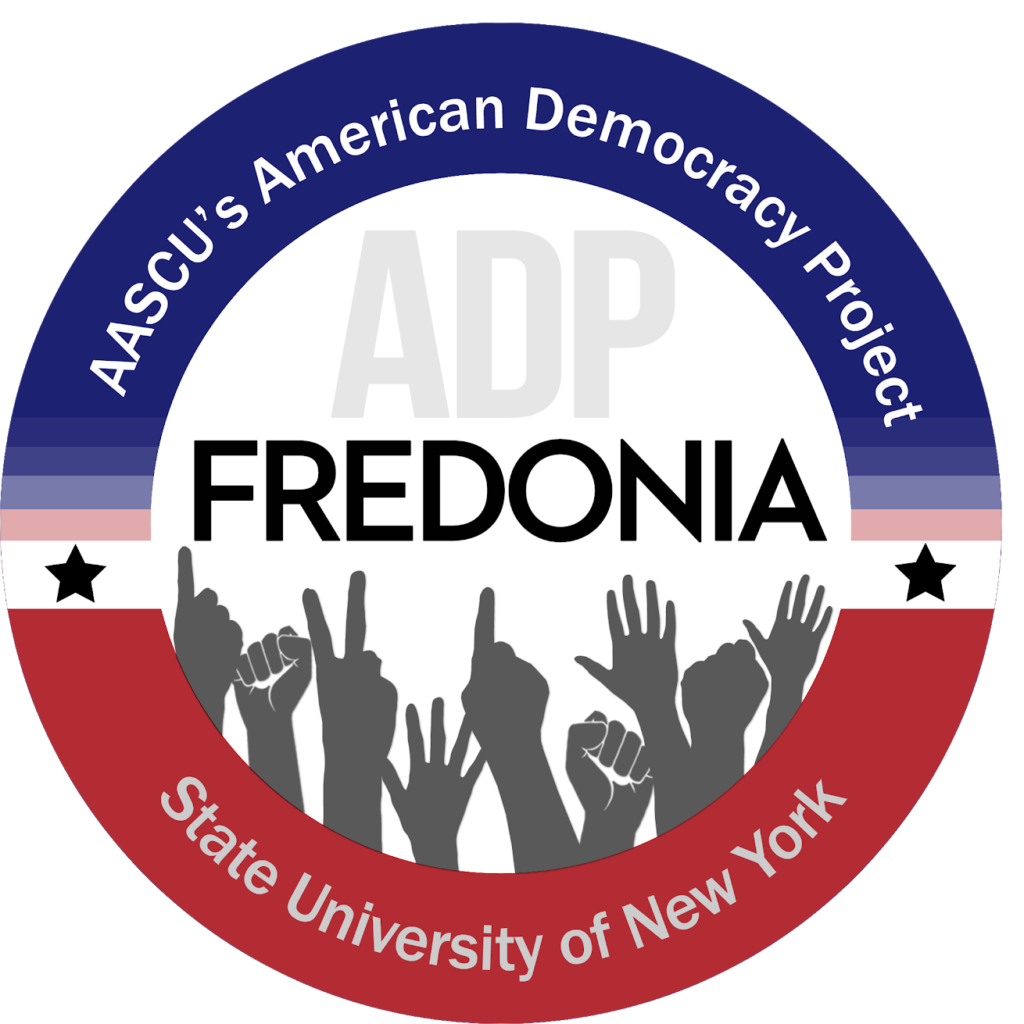CHLOE KOWALYK
Staff Writer
On Thursday, Nov. 12, the American Democracy Project hosted their final event of the semester.

Featuring a diverse set of panelists, the ADP hoped to provide students with multiple resources and ways to stay involved with politics after the election.
The panelists included Dr. James Hurtgen, Dr. David Rankin, student Bella Wilder, David Phillips, Norman Green and Brian Abrams. Each panelist provided helpful insight to the over 40 attendees.
Questions for the panelists were led by ADP chair, Dr. Angela McGowan-Kirsch, and club president, Thomas Sheffield.
First, the panelists were asked how to handle election-related anxiety.
Phillips explained that when viewing media, you “don’t have to force yourself to consume it.” He emphasized taking breaks from the election and allowing yourself some time to breathe.
The panelists were then asked about what they found to be shocking about the election.
Wilder stated, “It’s crazy how many people got out to vote early this year that were young.”
She’s correct, as Chautauqua County has seen a dramatic increase in young voters and requests for absentee ballots this year.
Green, the Democratic Election Commissioner for Chautauqua County, expressed how “early voting was sweeping the country,” with people waiting in long lines just to vote even before election night.
Abrams, the Republican Election Commissioner for Chautauqua County, explained that people are gravitating towards absentee voting, as around 11,500 people requested an absentee ballot in the county.
He expressed that the voters’ enthusiasm to get involved in the election process this year was admirable.
This year, ballot counting in Chautauqua County was much easier than in years past. Green explains that the poll books were on iPads for easier use and they utilized card scanners.
The panelists were also asked about reliable media sources.
Wilder says that she prefers the New York Times, as it is more unbiased in comparison to Fox News or CNN.
Rankin recommends PolitiFact, especially for students, and it is great for verifying things. This is especially important when navigating media and what may or may not be true.
However, when having a conversation with those who have differing beliefs, Hurtgen advises you should always listen to what others have to say.
“People want to be respected for their views,” he explains. It is important to hear people out, and neither of you should force your views onto the other.
One attendee raised a great question about the future of voting online.
Green explained that online voting is a possibility, but in terms of technological advancement, we aren’t quite there yet.
While this is a future possibility, we cannot yet ensure the legitimacy of online voting to prevent voter fraud.
In terms of the supposed voter fraud in the recent election, Philips explained that there is currently no evidence of it, as this is something we can continue to follow.
Overall, McGowan-Kirsch feels that the event was successful in informing students.
She explained that getting the perspective from Wilder, a student, was beneficial. Wilder also mentioned the FDI, another political club students can get involved with next spring.
McGowan-Kirsch said she “especially liked hearing from Green and Abrams,” who knew a lot of statistics and information related to Chautauqua County due to their positions as election commissioners.
She also expresses that a great way for students to stay involved is to continue to read the news.
“[We need to] be cognizant of where we’re getting our research and our news, and knowing that if we’re looking at something that might be biased, we should check it out from the other perspective,” she explains.
This is why it is important to view a variety of media outlets, including interviews, to get different perspectives.
Also, using resources such as PolitiFact, as Rankin explained, is great for fact-checking.
McGowan wants first-time voters to know that getting involved in future elections doesn’t necessarily mean they will be “as contentious as this one” and that students shouldn’t shy away from getting involved as a result of this.
There has always been a polarization in past elections, but they have always been handled more civilly.
Next semester, the ADP hopes to have more events in the spring when classes start back up.
McGowan would like to express her gratitude to the over 100 students who attended the ADP’s events throughout the semester.
“I appreciate everything the campus community did to support our efforts,” she states.
She explains that it is important for students to know how, when and where to vote.
Civic engagement is very important, especially for students.
